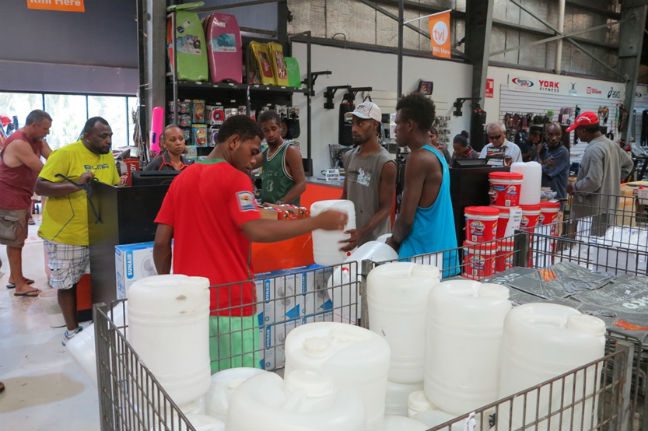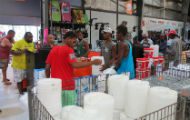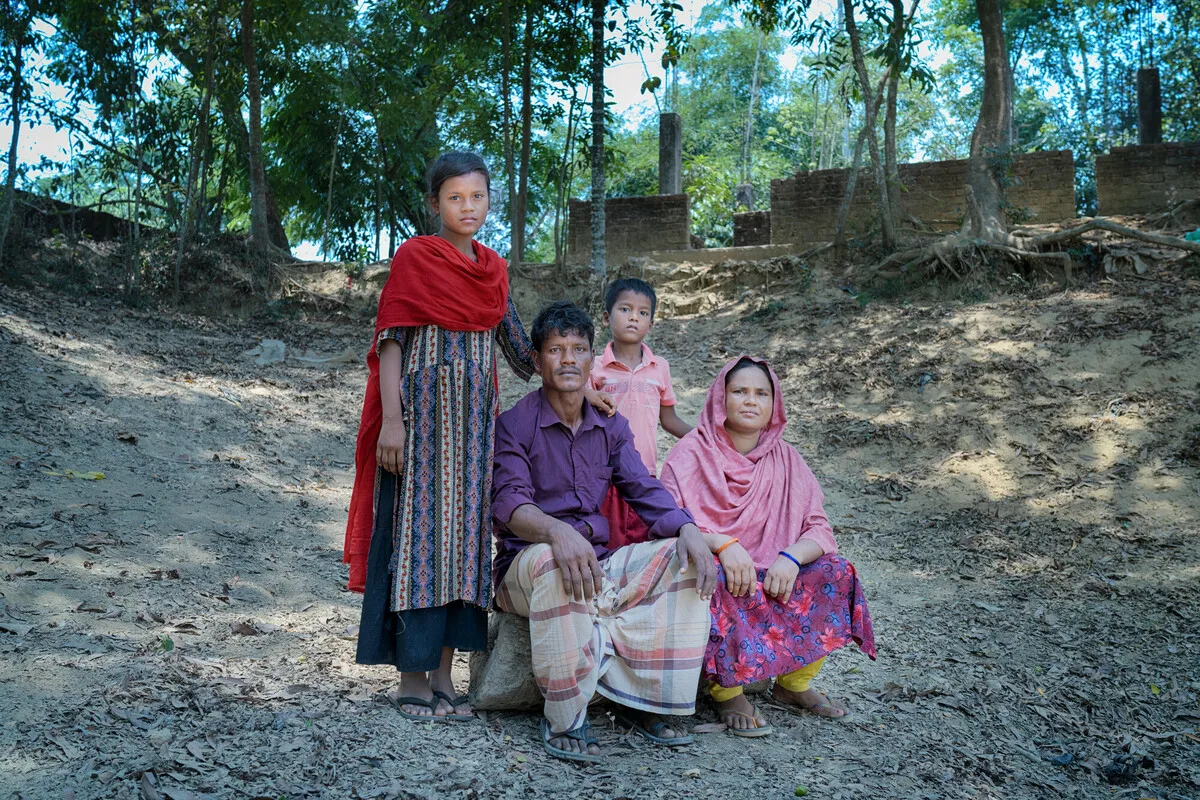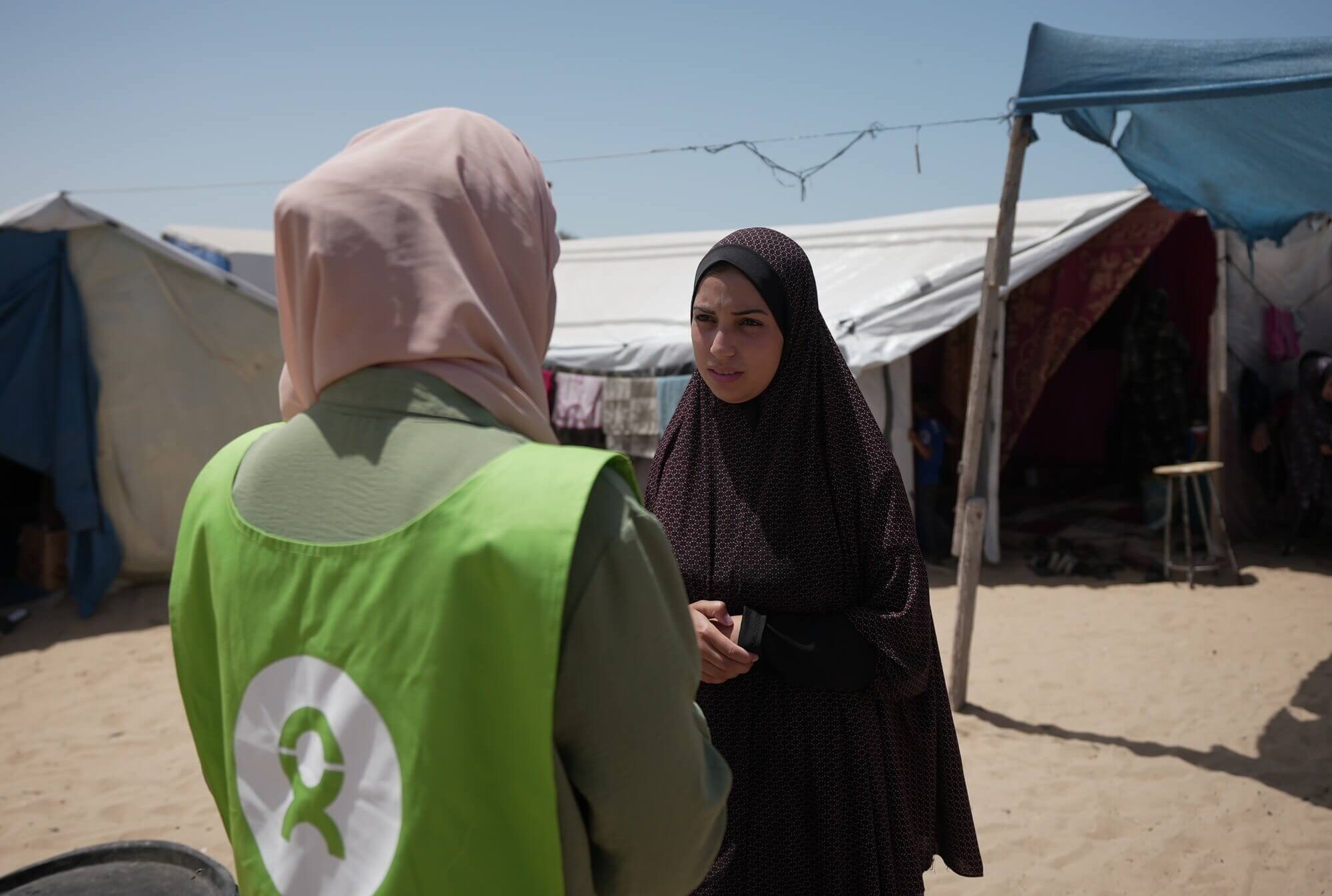By Colin Collett van Rooyen, Country Director, Oxfam Vanuatu.
It is Friday 13th – and the superstitious in Vanuatu may well be feeling vindicated today.
I’m in Port Vila, (aka Vila locally), the capital of Vanuatu and a city recently declared most vulnerable to natural disasters in the world.
So in truth, it doesn’t have to be Friday 13th for a Category 5 Severe Tropical Cyclone to head our way. It could happen any day between November and April any year — cyclone season here in the South Pacific.
It’s the Cat Five thing that makes it unusual. People here are used to cyclones. They are used to earthquakes and volcanoes too, and the odd tsunami — it’s what happens here in Vanuatu. What people are not used to is the idea of the strongest possible level of cyclone hitting this wonderful country of over 80 beautiful islands. You know… the ‘paradise’ stuff of tourist brochures, where the words ‘untouched’ (odd given the punch a cyclone will give) and laid back (with a few volcanoes around) are overused but often quite accurate.
But not today.
Right now we are on red alert, the highest alert and warning level in Vanuatu when a cyclone is around. This is across all of the six provinces, and islands. The cyclone is thundering its way southwards towards Vila and beyond. It changes its path slightly to tease us every now and then. Cruel trick. Two hours ago it looked like a near miss for Vila. Right now, if the forecasters have finally got into the mind of Pam (as she is called), she may be moving to a more intimate arrangement with our city and ourselves.
So things are happening fast. People have moved into shelters if that is what they were going to do. But some are waiting, and it may be too late to move now. A red alert normally means stay where you are, lock down and wait it out. An urgent call, probably one of many to the Emergency Coordination Centre not too long ago, after red was announced… “I need to get to a shelter now, my family too, help!” and so some brave person risks their life to collect and transport a family to a shelter.
Why do people wait so long? Maybe it’s human nature. We hope for the best and wait; we buy lottery tickets in so many ways.
With a storm like Cyclone Pam — where winds can be above 200km/h –things become beyond the realm of imagination or comparison very quickly.
Our house is our most valued possession – it homes our things, our comforts. I heard this type of talk this morning when I visited an evacuation center up on a hill close to the beach near Vila. It was looking quite empty so I asked a few people who were there how it was that they were there already and others weren’t.
“We came here last night already” a grandmother in her mid-50s told me.
“This is my grass mat, this is my rug and my pillow and there are my other things, my food and my spoon and the things we may need,” she said, pointing to small bag of items.
She had learnt from the past, she said. Cyclones can be very dangerous and “I worry about the electricity lines falling on people when the winds get bad so I came here where it will be safe”.
Her friends were not that eager. They had come in and had a look earlier in the morning and had said they may be back if they thought it was necessary. And that’s the challenge we all face particularly when we work, as Oxfam, its allies and partners do, on preventing the negative impact of events such as this. With a storm like Cyclone Pam — where winds can be above 200km/h –things become beyond the realm of imagination or comparison very quickly.
So Pam is almost upon us. Once it has gone we will work together with governments, faiths, colours and genders. We will rebuild, and we will prepare for the next one.
The wind howls are getting louder now. I have to take my own advice and pack a few things away in places that may remain dry if the roof goes, to get a few things out that we may need (roof or not) to have close and to settle down for the night with a touch of real fear.
See you after Pam has left the house. Or as we say in Bislama here in Vanuatu, Lukim yu! Ale tata!
You can help support Oxfam’s response to Cyclone Pam by donating below




